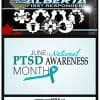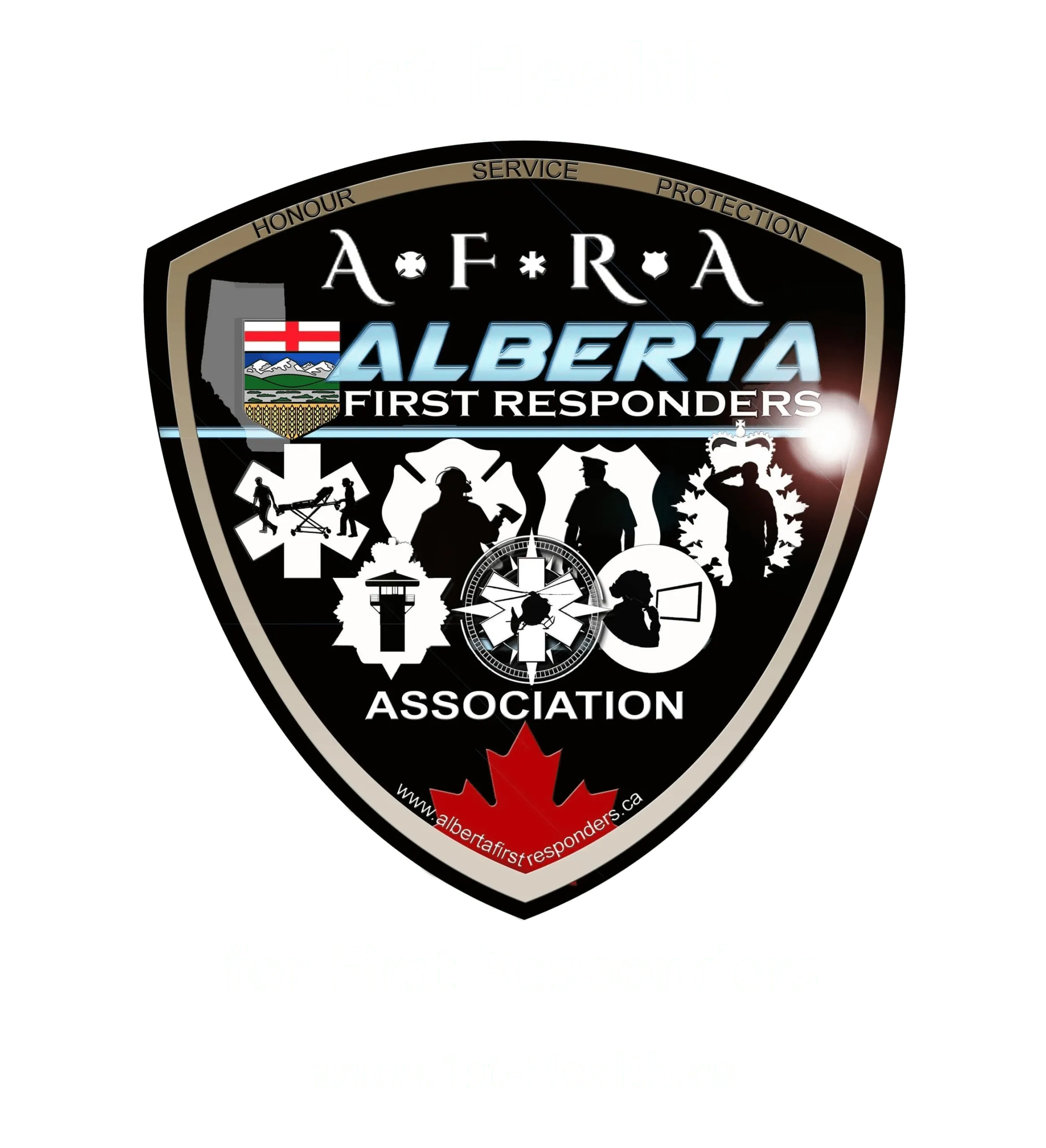Module 7: Peer Support & Seeking Help
You are part of a unique community, forged in shared experiences that few outside your profession can truly grasp. While incredible strength is found in your dedication to service, the greatest strength often lies in recognizing you don’t have to carry the burden alone. This module champions the unparalleled value of peer support and demystifies the process of accessing professional mental health support, emphasizing that asking for help is not a sign of weakness; it’s a testament to your commitment to “1st Health” and your ability to continue serving effectively.
The Unrivaled Value of Peer Support Peer support isn’t just a buzzword; it’s a lifeline. When you’re facing the aftermath of a critical incident or the cumulative stress of the job, connecting with someone who truly understands your world is invaluable.
“They Just Get It”: The Unique Validation of Shared Experience:
- No matter how supportive your family or friends are, there’s a profound difference when you talk to another first responder. They understand the nuances, the black humour, the operational realities, and the unspoken weight of the job without you needing to explain every detail.
- This shared understanding creates a safe space for vulnerability and allows you to feel truly seen and heard. It reduces feelings of isolation and confirms that your reactions are normal human responses to abnormal circumstances.
- Whether it’s a quick chat with your partner in the truck after a tough call, or a longer conversation with a peer who’s been there, these interactions are critical for processing.
Formal vs. Informal Peer Support:
- Formal Peer Support Programs: Many first responder organizations across Alberta have established Peer Support Teams or Critical Incident Stress Management (CISM) teams. These are composed of trained first responders who volunteer their time to support their colleagues. They understand confidentiality, the chain of command, and the unique stressors of the job. The AFRA also has a monthly peer support program called “Pulse Check” available as well.
- Action: Know who your peer support contacts are. Keep their numbers accessible. Utilize formal debriefings and defusings when offered – they are designed to help you process in a structured way.
- Informal Connections: Equally important are the everyday connections with trusted colleagues. This is your crew, your shift, the people you regularly work with.
- Action: Cultivate these relationships. Be the person your colleagues can confide in, and allow them to be that person for you. A simple “Are you okay?” or “That one was rough, eh?” can open the door.
- Active Listening: Supporting Your Peers with Empathy:
- Being a good peer supporter means more than just sharing your own experiences. It means truly listening to your colleague without judgment, interruption, or immediately offering solutions.
- Informal Connections: Equally important are the everyday connections with trusted colleagues. This is your crew, your shift, the people you regularly work with.
Key Principles of Active Listening:
-
-
-
- Be Present: Give them your full attention. Put down your phone, turn off distractions.
- Listen to Understand: Focus on what they are saying, both verbally and non-verbally.
- Empathize: Try to put yourself in their shoes and acknowledge their feelings (“That sounds incredibly tough,” “I can only imagine how frustrating that must have been”).
- Validate: Let them know their feelings are valid (“It’s okay to feel that way,” “Anyone would be shaken by that”).
- Avoid “Fixing”: Often, people just need to be heard. Resist the urge to offer advice unless explicitly asked.
- Maintain Confidentiality: What’s shared in confidence stays in confidence, unless there is an immediate risk of harm to themselves or others.
-
-
Building Your Support Network
While your first responder family is crucial, a diverse support network outside the job provides different perspectives and valuable outlets for emotional support.
Beyond the Job: Diverse Relationships for Holistic Well-being:
-
- Cultivate strong relationships with your family (partner, children, parents, siblings), friends who are not in emergency services, and members of your community (e.g., sports teams, faith groups, hobby clubs).
- These relationships offer a different kind of respite – a chance to talk about non-work topics, engage in different activities, and receive support from people who love you unconditionally, independent of your uniform.
- Action: Dedicate intentional time to these relationships. Plan outings, dinners, or simply make time for genuine conversation.
Communicating with Loved Ones: Bridging the Gap:
It can be challenging to explain the realities of your work to those who don’t live it. They may not understand why you’re irritable, withdrawn, or having trouble sleeping.
Strategies for Sharing Appropriately:
-
-
- Share the Impact, Not Necessarily the Details: Instead of graphic details, describe how an incident made you feel (“That call really hit me hard, I’m feeling drained”).
- Educate Gently: Explain concepts like cumulative stress, moral injury, or the adrenaline dump. “My body’s still buzzing from that call, so it’s hard to settle down right now.”
- Set Expectations: “I need about 20 minutes to decompress when I get home, then I’ll be ready to chat.”
- Articulate Your Needs: Don’t expect them to read your mind. “I just need you to listen right now,” or “Could you help me with [chore] so I can relax?”
- Encourage Their Perspective: Ask them about their day, too. This reinforces that the relationship is reciprocal.
-
Recognizing When Professional Help is Needed
It takes immense courage to put on your uniform every day. It takes equal, if not greater, courage to acknowledge when you need professional help. Knowing the warning signs is vital for yourself and your peers.
- Persistent Symptoms: When emotional or physical distress becomes chronic, interferes with daily functioning, or leads to significant changes in behavior.
- Duration: Symptoms lasting more than a few weeks or not improving after initial peer support/debriefing.
- Intensity: Feelings of sadness, anxiety, or anger that are overwhelming and difficult to manage.
- Interference: Your symptoms are affecting your ability to perform your job, maintain relationships, or engage in normal daily activities.
- Physical Deterioration: Worsening physical symptoms like chronic headaches, digestive issues, or constant fatigue (beyond normal shift work tiredness).
- Loss of Interest/Pleasure (Anhedonia): When activities you once enjoyed, both on and off duty, no longer bring satisfaction or joy. You might feel numb or apathetic towards things you used to be passionate about.
- Increased Isolation or Substance Use: These are significant red flags.
- Withdrawal: You’re intentionally pulling away from social interactions, family, or colleagues.
- Self-Medication: You find yourself increasingly relying on alcohol, prescription drugs, or illicit substances to cope with stress, sleep, or numb emotions. This is a dangerous path that often exacerbates underlying issues.
- Intrusive Thoughts or Flashbacks: When trauma symptoms become overwhelming and debilitating.
- Unwanted Replays: Constantly reliving traumatic events in your mind, during the day (flashbacks) or through nightmares.
- Intense Emotional/Physical Reactions: Feeling as though you are back in the traumatic event, even when you are safe.
- Avoidance Behaviours: Going to extreme lengths to avoid people, places, or situations that remind you of the trauma.
- Thoughts of Self-Harm or Harming Others: If you or someone you know is having thoughts of self-harm, suicide, or violence towards others, seek immediate help.
- Call 911 immediately.
- Boots on the Ground: 1-866-724-2684 or https://botgalberta.com (First Responder Specific)
- Canada’s Suicide Crisis Helpline: Call or Text 988
- Crisis Text Line: Text HOME to 686868
- Alberta’s Mental Health Helpline: 1-877-303-2642
Navigating Mental Health Services in Alberta
Accessing professional help can seem daunting, but Alberta has a range of services available. Understanding the roles of different professionals can help you choose the right path.
Types of Professionals:
- Psychologists (R. Psych.): Hold advanced degrees (Master’s or Ph.D.) and are trained in assessing, diagnosing, and treating mental health conditions through various forms of psychotherapy (talk therapy). They do not prescribe medication.
- Therapists/Counsellors (e.g., CCC, RSW, RPC): Provide talk therapy and coping strategies to help individuals deal with emotional and psychological challenges. They come from various educational backgrounds (e.g., social work, counselling degrees) and hold different designations.
- Psychiatrists (MD): Medical doctors who specialize in mental health. They can diagnose mental health conditions, provide psychotherapy, and are the only mental health professionals who can prescribe and manage medication. Often sought for complex cases or medication management.
- Social Workers (RSW): Registered Social Workers provide counselling, connect individuals to community resources, and advocate for their clients. Many specialize in mental health and trauma.
Accessing Support: Your Pathways to Care in Alberta:
- Your Family Doctor: Often the first point of contact. They can assess your general health, offer initial support, and provide referrals to specialists. Be honest with them about your struggles.
- Our Free “1st Health” Mental Health Support App: This app will be a direct gateway for Alberta first responders. It will offer:
-
- Immediate Resources: Self-help tools, guided exercises and feedback.
- Self-Assessment Tools: Discreetly gauge your current well-being.
- Connection to Care: A curated list of vetted mental health professionals in Alberta who understand first responder culture, with direct booking or contact information. This is designed to reduce the “friction” of finding the right help.
-
- Employee Assistance Programs (EAPs): Most first responder organizations in Alberta offer confidential Employee Assistance Programs. These provide a set number of free counselling sessions for you and often your immediate family members. EAPs are confidential; information shared does not go back to your employer. They can also help with referrals to longer-term care.
- Alberta Health Services (AHS) Mental Health Services: AHS provides a range of free and accessible mental health services, including crisis lines, walk-in clinics, and community mental health teams.
-
- Alberta Mental Health Helpline: Call 1-877-303-2642 (24/7). They can provide support and guide you to resources.
-
- Private Practice: Many psychologists, therapists, and social workers operate private practices. These are typically fee-for-service, but many first responder benefits plans (if applicable) cover a portion of the cost. Our app can help you find these.
- Confidentiality & Privacy: Addressing Common Fears:
- It’s a common and valid fear among first responders that seeking mental health help will negatively impact their career, their security clearance, or lead to stigma.
- Professional Standards: Licensed mental health professionals (Psychologists, Psychiatrists, Registered Social Workers, Certified Counsellors) are bound by strict ethical codes and provincial laws regarding client confidentiality. Your information is private.
- Duty to Warn: The only exceptions to confidentiality are if there is an imminent risk of harm to yourself or an identifiable third party, or if compelled by a court order. These are rare and apply to everyone, not just first responders.
- Open Communication with Employer: If your organization has a robust wellness program, they will emphasize confidential pathways. If you have concerns, talk to a trusted peer support member or EAP representative first. Your well-being is paramount.
Remember, you are not alone. There is a vast network of support available, both within your peer group and through professional services. Reaching out is a sign of immense strength and a proactive step towards ensuring your long and healthy career.



